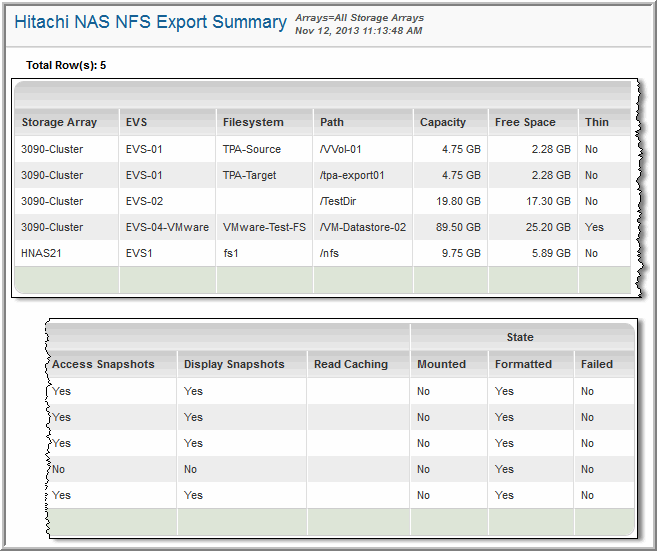

Storage Array | The name given to the storage array. |
EVS | Name given to the enterprise virtual server (EVS). |
Filesystem | The instance name of the filesystem. For storage-based snapshots, this is the name assigned when the filesystem was created or renamed. |
Path | NFS export path, which is the filesystem directory path to the export. |
Capacity | Filesystem size. Values are stored in the database as KiB and rendered according to your user profile preferences. |
Free Space | Filesystem free space. Values are stored in the database as KiB and rendered according to your user profile preferences. |
Thin | Indicates if the filesystem is thinly provisioned: Y or N. |
Access Snapshots | Indicates the accessibility and visibility of the snapshot directory. Examples: disabled, hidden, or enabled. |
Display Snapshots | Indicates if snapshots are enabled: Y or N. |
Read Caching | Status of read caching. Possible values: disable = Read caching is disabled.enable-all = All files are candidates for read caching.enable-cvl = Only cross-volume links are candidates for read caching. |
Mounted | Indicates if the filesystem is mounted: Y or N. |
Formatted | Indicates if the filesystem is formatted: Y or N. |
Failed | Indicates if the filesystem is in a failed state: Y or N. |